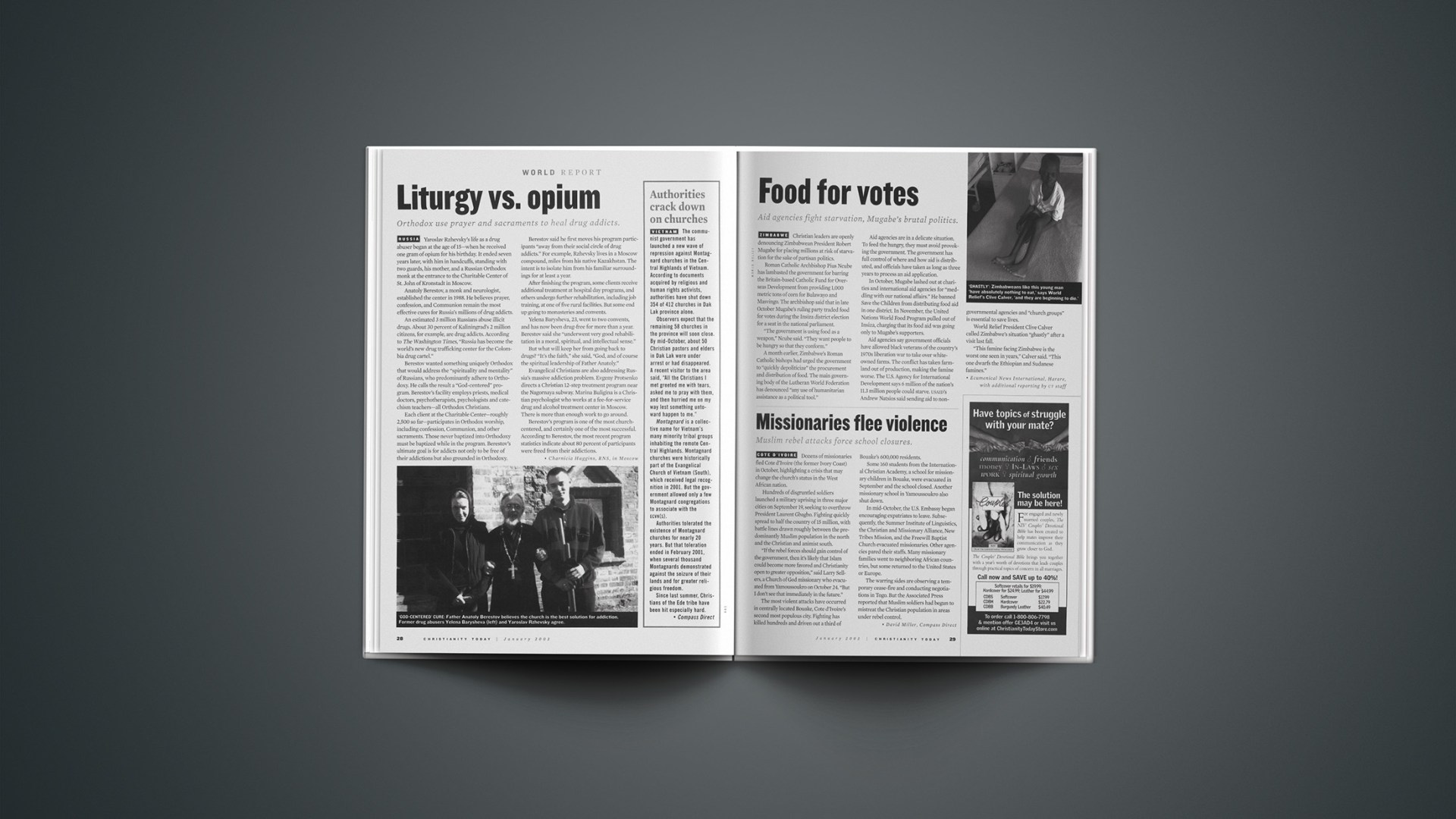Yaroslav Rzhevsky’s life as a drug abuser began at the age of 15—when he received one gram of opium for his birthday. It ended seven years later, with him in handcuffs, standing with two guards, his mother, and a Russian Orthodox monk at the entrance to the Charitable Center of St. John of Kronstadt in Moscow.
Anatoly Berestov, a monk and neurologist, established the center in 1988. He believes prayer, confession, and Communion remain the most effective cures for Russia’s millions of drug addicts.
An estimated 3 million Russians abuse illicit drugs. About 30 percent of Kaliningrad’s 2 million citizens, for example, are drug addicts. According to The Washington Times, “Russia has become the world’s new drug trafficking center for the Colombia drug cartel.”
Berestov wanted something uniquely Orthodox that would address the “spirituality and mentality” of Russians, who predominantly adhere to Orthodoxy. He calls the result a “God-centered” program. Berestov’s facility employs priests, medical doctors, psychotherapists, psychologists and catechism teachers—all Orthodox Christians.
Each client at the Charitable Center—roughly 2,500 so far—participates in Orthodox worship, including confession, Communion, and other sacraments. Those never baptized into Orthodoxy must be baptized while in the program. Berestov’s ultimate goal is for addicts not only to be free of their addictions but also grounded in Orthodoxy.
Berestov said he first moves his program participants “away from their social circle of drug addicts.” For example, Rzhevsky lives in a Moscow compound, miles from his native Kazakhstan. The intent is to isolate him from his familiar surroundings for at least a year.
After finishing the program, some clients receive additional treatment at hospital day programs, and others undergo further rehabilitation, including job training, at one of five rural facilities. But some end up going to monasteries and convents.
Yelena Barysheva, 23, went to two convents, and has now been drug-free for more than a year. Berestov said she “underwent very good rehabilitation in a moral, spiritual, and intellectual sense.”
But what will keep her from going back to drugs? “It’s the faith,” she said, “God, and of course the spiritual leadership of Father Anatoly.”
Evangelical Christians are also addressing Russia’s massive addiction problem. Evgeny Protsenko directs a Christian 12-step treatment program near the Nagornaya subway. Marina Buligina is a Christian psychologist who works at a fee-for-service drug and alcohol treatment center in Moscow. There is more than enough work to go around.
Berestov’s program is one of the most church-centered, and certainly one of the most successful. According to Berestov, the most recent program statistics indicate about 80 percent of participants were freed from their addictions.
Copyright © 2003 Christianity Today. Click for reprint information.
Related Elsewhere
For more Christianity Today articles on Russia, see our World Report.
More information on the Russian drug trade is available in an article from Russia Weekly, “The Heroin of our Time | This year, the drug trade may compare with the profits of the oil sector.”










